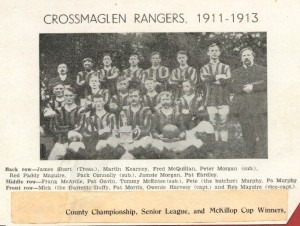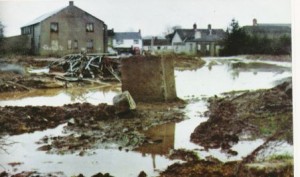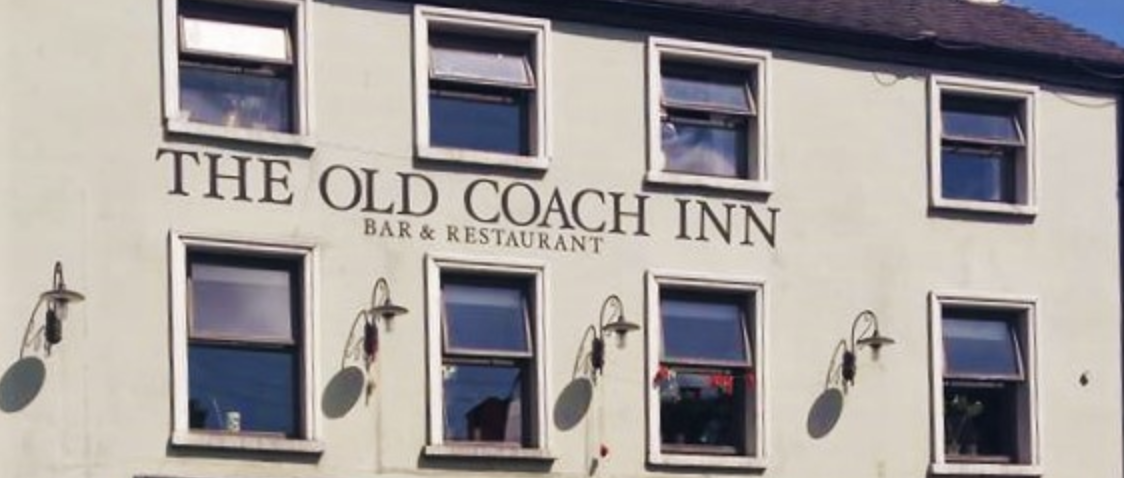Club History
![]()
Crossmaglen is a the largest town in the parish of Upper Creggan which covers a relatively small area of South Armagh and North Louth made up of approximately 1600 families. The parish has always been a vibrant GAA stronghold with 4 thriving clubs, 3 of which play in Armagh and 1 in Louth. 
The Crossmaglen GAA club was founded on 1st October 1887 and won their first County title in 1906. The name Rangers and the black and amber colours were adopted at a football meeting held in Owen Traynors pub in Crossmaglen in 1909. The Rangers soon made their presence felt and won the championship and McKillop Cup competition in 1911, 1912, 1913 and 1916. In fact they played over forty matches in succession without suffering one defeat in those years.
The 1920’s saw the Rangers winning 5 championships in a row from 1923 to 1927. Championship titles were won in the 1930’s and 1940’s but the 1950’s was to prove to be the only decade in which the Rangers failed to win a title since they were formed. The team that emerged in the latter half of the 1960s became legendary winning 3 in a row from 1965 – 1967 as well as in 1970.
The well documented occupation of the club grounds during the troubles did not lessen the resolve of the club and success at championship level was achieved in 1975, 1977, 1983 and 1986. A very barren spell of 10 years passed until Joe Kernan’s young team took the country by storm and recaptured the Armagh County Title in 1996.
Thus began the now legendary period of success, which has landed 13 consecutive Armagh County Championships, 7 Ulster titles and 4 All Ireland titles. The tally of County Titles stands at 37 equalling Castleblayney’s national record and also equalling Ballina’s national record of 13 in row. Rangers 3rd consecutive Ulster club title achieved on 07 December 2008 also matched the Ulster record of consecutive titles in this competition.
Today, the club fields a total of 20 teams at every age group from U-8 to U-21, as well as Senior, Junior, B, Ladies Football and Camogie. In addition to a record number of Co Armagh Senior Championship successes, the Rangers have won 4 consecutive B Championships (1992-1995), 7 U-21 Championships including 4 consecutive titles (1993-1996) and 7 Minor Championships as well as having had numerous underage successes including All-Ireland Feile titles in 1988 and 2002.
Off the field, probably the most significant year in the club’s history was 1949 when the club finally took the momentus step of purchasing their own grounds. 4 fields on the Dundalk Road owned by Joe Fitzpatrick were purchased for the sum of £1200 and in 1953 the Rangers Hall was built. The grounds were developed over period of 10 years and Blessed Oliver Plunkett Park was officially opened on 19 April 1959 with a game between Derry and Meath. Prior to 1949 the Rangers played their games in various locations in the area including Monog, Crinkill, McConville’s field on the Culloville Road, McConville’s Meadow on the Blayney Road and Willie Hale’s field on the Dundalk Road where St Joseph’s High School now sits. However, the favoured location for the Rangers in the early years was the Schoolhouse field on the Blayney Road, now the site of Rathview Park.
 In 1969 the club faced into one of the darkest periods in its history with the well documented occupation and destruction of the club’s property at St Oliver Plunkett Park. At this point the Rangers facilities were 20 years ahead of their time but the impact of the occupation left the club unable to make any progress in terms of developing facilities and in a very short time the club was left 20 years behind the times.
In 1969 the club faced into one of the darkest periods in its history with the well documented occupation and destruction of the club’s property at St Oliver Plunkett Park. At this point the Rangers facilities were 20 years ahead of their time but the impact of the occupation left the club unable to make any progress in terms of developing facilities and in a very short time the club was left 20 years behind the times.
When the grounds were eventually returned to the club the years of stagnation began to be addressed and more recently the club has embarked on a series of development projects to try and bring our facilities up the highest standards possible for our young players and spectators. A new 1200 seater covered spectator stand and terracing was opened in 2002 and in 2008 the main pitch was reconstructed with a new state of the art playing surface with further development planned over the coming years.
In looking back at the past 123 years of the clubs history it is important to recognise and pay tribute to those individuals who kept the club going during difficult times in the early years, those who had the had the foresight and vision to purchase and develop the current club property on the Dundalk Road and those who stood firm in the face of adversity during the troubles.
![]()




